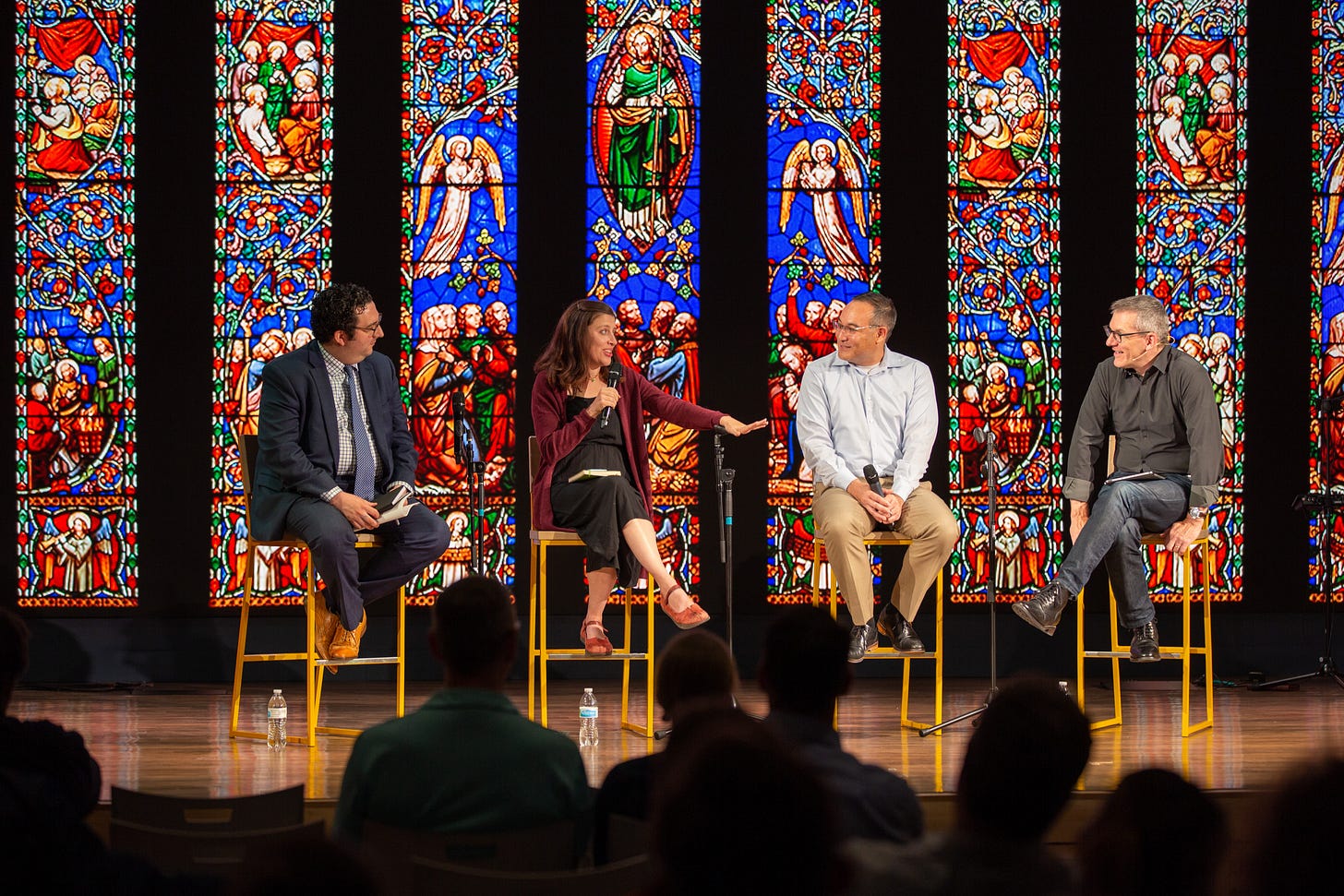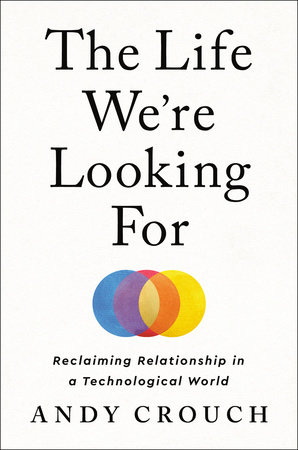Last week, I participated in a public dialogue organized by The Carver Project with my friends Andy Crouch, Tish Harrison Warren, and Michael Wear. We focused on Andy’s new book, The Life We’re Looking For: Reclaiming Relationship in a Technological World. Following Andy's framing comments, the rest of us applied the book to the three areas of The Carver Project’s mission: university (me), church (Tish), and society (Michael). We had all read Andy’s book, but none of us had much of an idea of what the others were going to say. Yet it all seemed to work. And I think it worked because we trusted each other.
As Andy noted in his opening comments, we were in St. Louis not for the dialogue but because we were meeting together with our families. We’ve spent the past two years (along with two other friends) investing in each other’s lives and building trust—the kind of trust that takes years to build and moments to lose. Having that trust allowed us to improvise and laugh with one another in our public dialogue.
We also laughed during the time with our families in the days surrounding the dialogue. But we didn’t just laugh. We prayed and cried and pondered. And we encountered hurt feelings, complex misunderstandings, and frayed temperaments that come with the reality of being in close proximity to one another’s lives, hopes, and insecurities. Trusted friendships do not emerge without grace, risk, and forgiveness.
In the News
These themes of friendship and trust called to mind Tish’s recent New York Times piece on marriage. Tish shares vulnerable reflections on her own marriage including fights with her husband and lots of counseling, noting that at times they stayed married “sheerly as a matter of religious obedience and for the sake of our children.” Then she observes a competing cultural trend:
[T]he pendulum has swung so far that surrendering personal happiness to remain in an unfulfilling marriage seems somehow shameful or cowardly, perhaps even wrong. We hear stories of people leaving a marriage as an act of self-love, to embark on a personal, spiritual or sexual journey of self-discovery. There’s even a new trend of divorce celebration parties. In contrast, the story of someone staying in a disappointing marriage for the kids or because of a religious commitment or for some other similarly pedestrian reason is, at best, boring. Worse, it seems inauthentic and uncreative, lacking in boldness and a zest for life.
Tish is quick to note that divorce is sometimes necessary:
There was a time, not long ago, when getting a divorce in America was prohibitively difficult. That left individuals — usually women — stuck with philandering husbands and in abusive and dangerous marriages. Divorce is at times a tragic necessity. I’m very glad it is available.
But she offers an alternative to the cultural trend:
I don’t give a lot of marriage advice. But I want to simply offer that choosing to stay in a marriage for all kinds of unromantic reasons is a good and even a brave choice.
The New York Times Twitter crowd was not pleased with Tish’s suggestion. Here is columnist Roxanne Gay:

Physician and author Jen Gunter had a similar reaction:


These critiques were echoed in tweets by Soraya McDonald, Jacob Bacharach, Noah Kulwin, and others.
In my Head
I was initially thrown by the intensity of the reaction to Tish’s marriage piece. But on reflection it occurred to me that her core claim presents a vision of human flourishing fundamentally at odds with those reacting to her. Tish’s counsel to choose sacrifice and even suffering cannot be reconciled with a normative vision that prioritizes personal happiness and well-being over all else.
This is, of course, an oversimplified contrast. Tish is careful to note that sometimes divorce is the right decision, especially in abusive situations. I know plenty of people who have chosen divorce or otherwise avoided marriage for reasons having little to do with personal happiness and well-being. I’ve walked with close friends through divorces that were far more complex than a choice between personal happiness and sacrifice. And in my own marriage, I choose personal happiness over sacrifice far more than I’d like to admit.
Still, for a subset of Tish’s critics, the problem with her piece is that it names an alternative god to self.
That’s not to say that Tish’s critics are selfish or that Tish is selfless. But the ultimate things to which they point are fundamentally at odds. Tish roots ultimate things in a God who calls for, and demonstrates, sacrifice and suffering for the sake of imperfect relationship. That such a message has become unthinkable to large segments of our pluralistic society should neither surprise nor discourage people of faith. But it gives us an opportunity to demonstrate a different way of living, whether in marriage or friendship.
In the World
One of Andy’s goals in The Life We’re Looking For is to expose the illusion of “the fantasy of impersonal power”—the notion that we can find happiness and convenience in money, power, and devices without costly and sacrificial relationships.
Andy suggests that we might instead build “households” where we are deeply known. He notes that living in a household means surrendering autonomy and independence. It is neither “the individual sexual freedom prized by emerging adults” nor “the bourgeois family, the cozy nuclear family unit insulated, at least in their home, from visibility and duty to others.”
This kind of vision offers a radical alternative to both progressive and conservative understandings of autonomy. It calls for sacrifice and suffering. And it calls for trust that requires risk. It’s not the only vision of the good life in our pluralistic society. But it’s part of the life I’m looking for.







Years ago, I came across a book written in 1961 by Gary Thomas entitled "Sacred Marriage: What If God Designed Marriage to Make Us Holy More Than to Make Us Happy?" As a young pastor trying to care for many married couples, I was captivated by the insight of that subtitle. By "holy" Thomas meant then something much like what Tish means now about "sacrifice" and what Andy is saying about a "household."